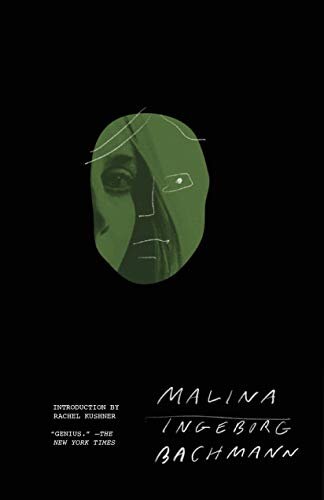My full priced 10 dollar book

This was adapted to the screen by the great late Werner Schroeter, starring Isabelle Huppert, and i love that film, it made me cry the 1st viewing, how everything was crumbling apart for the tragic heroine, who's not named Malina btw. It's a complex film, and i bet the novel is also. I've heard the author Ingeborg Bachmann as being comparable to Clarice Lispector also, so that means modern high art literature.
here's some blurbs
In Malina, originally published in German in 1971, Ingeborg Bachmann invites the reader into a world stretched to the very limits of language. An unnamed narrator, a writer in Vienna, is torn between two men: viewed, through the tilting prism of obsession, she travels further into her own madness, anxiety, and genius. Malina explores love, "deathstyles," the roots of fascism, and passion.
A psychological thriller of a tormented, existential sort. And it’s a love triangle, though a triangle most accurately drawn with dotted lines, given that it’s debatable how many of its members are real….This revised translation appears at a time when the book feels quite contemporary. Though even innovative mainstream fiction now being published reads like “A Is for Apple” compared to Malina, there’s no question that the book shares a spirit with any and all books about the unsought psychological challenges of being a woman in this world. Lucid and powerful. - —John Williams, The New York Times Book Review
This demanding work contains flashes of great beauty and insight but is ultimately marred by Bachmann's cryptic, fragmented prose and internalized story line that is based entirely on the narrator's emotional responses to events conveyed only obliquely to the reader. Part of the problem derives from the veiled yet critical references to Austrian history, which are satisfactorily explained only in the excellent afterword. Also difficult is the subject matter itself: the inability of language to express our deepest emotions and Bachmann's own frustrating struggle to create a new, all-encompassing prose. Like the author, who was ambivalent about her success as one of Austria's most influential postwar writers, the narrator is in a personal and professional crisis as she begins a new book. The novel loosely chronicles her love affairs with two men, the life-affirming Ivan, a Hungarian who begs the author to write about joy rather than express her own dark vision of humanity, and Malina, the introverted man she lives with. The narrator's playful attempt to act as a companion and " wife" to Ivan ends disastrously, with her own personality disintegrating. She becomes dependent on Malina who, as her alter ego, first leads her through a terrifying fantasy sequence about her father, and then, quite literally absorbs her into his own personality. First published in 1971, Bachmann's only novel is being reissued posthumously as part of the Modern German Voices series.
First published in Austria in 1971, this work gained quick acceptance into the canon of modern Austrian and women's literature. It concerns a triangle consisting of the narrator (an unnamed woman writer in Vienna), her lover (Ivan), and her alter-ego and male roommate (Malina) and culminates in her murder. Experimental in form and lyrical in style, this sometimes difficult novel explores the limits of language and the enigma of time--major themes in Austrian literature at least since the turn of the century. The role of gender in identity and personality is also considered. Malina was originally conceived as the "overture" to a trilogy entitled Ways of Dying , which remained incomplete at the time of the author's death in 1973. Recommended for collections with holdings in modern European or women's literature.

